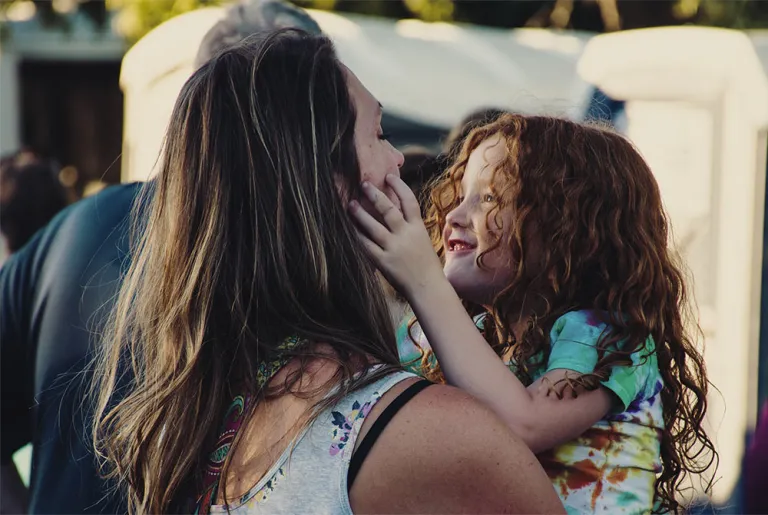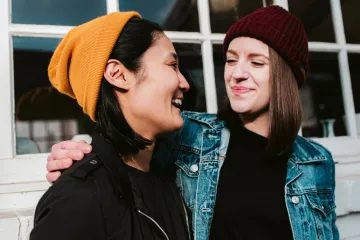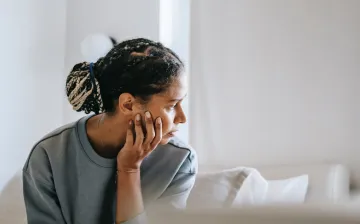
Chair-Designate Ffion Griffith shares her experience of parenting a trans child.
Parenting a trans child means we all transition
Trans politics have been dominating the news recently, from the increasingly partisan politics of the Trump-era, to anti-trans laws being introduced in Florida, the row over trans-affirming laws in Scotland, and more beyond. The conversation about trans issues often seems acutely polarised, representing the most extreme viewpoints. On one end, you find vocal advocates for trans rights, striving to validate the existence of their community in a way that is often characterised as simply angry protest. On the other end, you find trans exclusionary radical feminists (or TERFS) fearful that trans-acceptance increases the risks of predatory men using the accommodations for trans women to brutalise or threaten women. Lost in here are the stories away from the extremes, the human stories of the evolution of communities’ understanding of trans issues through lived experience. And one of the places this plays out is in the stories of the parents of trans people, like mine.
When we do appear, unless we too are part of the polarized extreme (callously disavowing trans children, or being staunch, protesting allies) we are otherwise on the periphery. But how we adapt and show compassion and commitment makes an incalculable difference to the lives of our trans children; and our learning and adapting becomes part of the evolution of our broader society in which people can be embraced for who they are. Many of us, maybe most of us parents of trans kids, are imperfectly but in a well-intentioned way, navigating a world of trans politics that can initially feel very unfamiliar and confronting.
I feel as though I, like many white, cis, heterosexual, middle-class, middle-aged folk, have been rightly required to adapt and change and educate ourselves in social politics. My own journey into this world began in Cardiff, Wales, as a child of the 70s and my first political awakening was around cis-gender issues. Growing up, I was expected to help my mother keep house whilst my brother was encouraged to consider the army as a career, or study science.
Next came race. I was told by my parents not to marry outside my race to avoid raising 'half-caste’ children. I was lucky to study at an international sixth form college while studying the International Baccalaureate - a program designed to foster global understanding. I married a Thai man and we had two beautiful sons.
When my youngest son was 10, he told us he was gay. That fitted with my experience of who he was and whilst I had to adjust to a new picture of his future, I encouraged him to explore his identity.
At 16, my child transitioned to identifying as non-binary and started seeing a gender therapist. Adapting to this change was challenging, as 'non-binary' was a new concept for me. However, I caught up and even my 84-year-old mother adjusted quickly to the language and understanding. The most difficult part was when they decided to change their first name, abandoning the name I’d chosen and known them by for 16 years. Again, I adapted, and supported them in crossing the bureaucratic hurdles to recognise their gender identity in the world, from bank forms to driving licenses.
Upon entering university, my child found a new level of acceptance and celebration in a queer space and transitioned to identifying as a woman. This shift was harder for me than accepting her non-binary identity, as in my lived experience, I had given birth to and raised a boy, a gay boy. I needed time to adjust, but she was impatient for the world to catch up to who she knew herself to be - and rightly so.
Now, as a 54-year-old woman nearing retirement, I've found myself in the unexpected but resolved position of advocating for trans rights. It’s been a journey with a few uncomfortable transitions (aren’t all transitions uncomfortable?), but it's one I've willingly embraced for my daughter.
Today, I absolutely recognise, and refer to her (including when using my internal voice), as a woman. Hearing her ‘dead-name’ is jarring and I don’t hesitate to correct any misgendering, from any quarter.
The realisation I have is simple but, for me, profound: validating my daughter’s existence helps protect her from depression, anxiety, and the potential for self-harm and gives her validation and a platform to be self-expressed and to take her place in the world. I believe that all members of the queer community, however they identify, deserve our acceptance and honouring of who they say they are. What does that cost us to do? A bit of discomfort and confronting the fear of the unfamiliar.
Being the parent of a trans child in today's world can be a challenging journey. But, it's also a journey filled with immense love, learning, and growth, shaping us into greater understanding and acceptance of people. In a world that often seems polarised, we, as parents, are given the chance to support our children, advocate for their rights, and amplify their voices. Surely we can all agree that every child deserves to be seen, acknowledged, and loved for who they know themselves to be.
Ffion Griffith is Chair-Designate of the Relate Board. Outside work, Ffion lives in Essex with her partner, is the mother of two adult children, loves to travel to new places and is a keen scuba diver.
How we can help
If you’re looking for support with your relationships, we can help. We offer a range of ways to speak with a trained relationship expert including ongoing counselling, 30 minute web and phone chats, and one session therapy.
Find out which service is right for you
How you can help
Have you found this advice helpful? Make a donation to help us reach more people and continue supporting the nation’s relationships:
Can't afford to donate? We understand. Instead, we ask that you leave us a 5 star review on Trustpilot.



